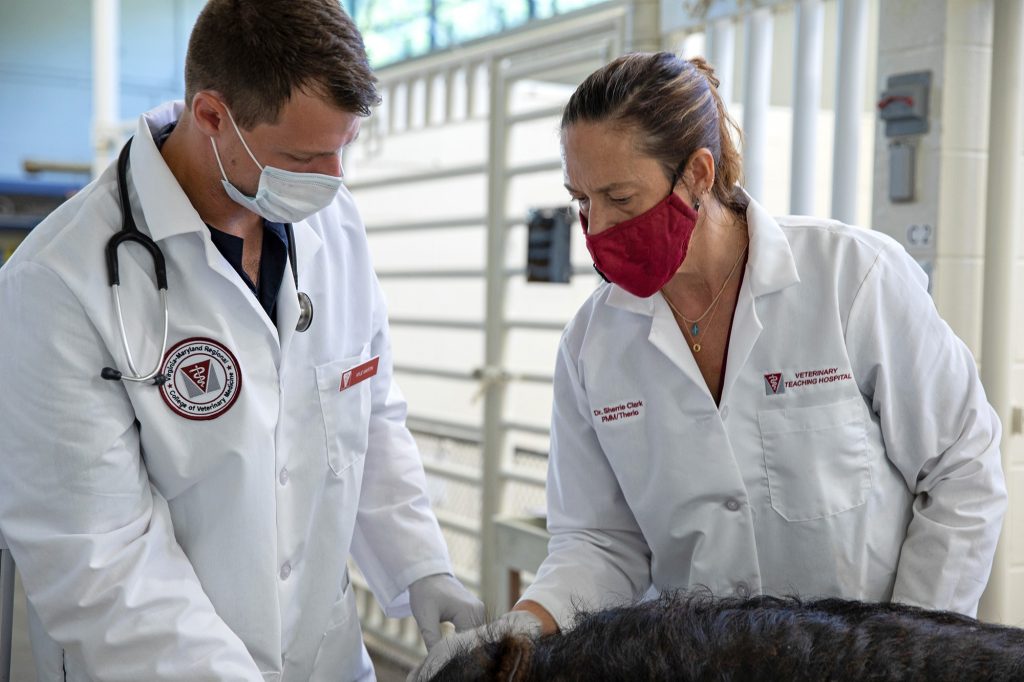The crisis in Ukraine continues as farmers prepare to plant crops this spring. And now there are...
Rural Veterinary Shortages Create Risks for U.S. Food System

The U.S. is facing an alarming shortfall of veterinarians to treat livestock and poultry in rural areas, threatening public health, food safety, and economic growth in communities that depend on agriculture, according to a new report commissioned by Farm Journal Foundation.
More than 500 counties across the U.S. have shortages of food animal veterinarians, according to the report, authored by Cornell University’s Dr. Clinton Neill. Today, only about 3-4% of new veterinary school graduates pursue livestock or other food-animal practice areas, a stark decline from 40 years ago when about 40% of graduates specialized in this area. Shortages stem from several factors, including high levels of education debt that have outpaced potential earnings, especially in the rural U.S. This is encouraging more veterinarians to pursue companion animal practices and work in urban and suburban areas where incomes are often higher.
“The decline in food animal veterinarians in rural areas heightens concerns for a number of risks, including food safety threats, animal disease outbreaks, the potential passing of animal diseases to human populations, and decreasing rural economic growth,” Dr. Neill said. “In essence, veterinarians protect the whole of the human and animal population, so it is critical that we have a strong pipeline of practitioners to work in rural areas.”
Without enough food animal veterinarians and reliable access to the services they provide, 3.7 million livestock jobs are at stake. Veterinary shortages apply to both the private sector, where practitioners work with individual farming businesses, as well as the public sector, where veterinarians are needed for animal disease surveillance, food safety inspection, and ensuring animal welfare. Many U.S. government agencies employ veterinarians, but high levels of debt, as compared to potential income, are a major barrier for new graduates as they consider entering the field.
The report highlights a number of solutions that the U.S. government could deploy to improve the long-term sustainability of the rural veterinary workforce. These solutions include:
- Strengthening existing debt repayment programs. This should include expanding funding for the Veterinary Medicine Loan Repayment Program (VMLRP) and overhauling its application criteria to enable more veterinarians to participate.
- Expanding programs that offer business support. This should include increasing the funding and scope of the Veterinary Services Grant Program (VSGP), and establishing low-interest business loans for food animal private practices.
- Funding and establishing programs to support a strong pipeline of veterinary students. This could include support for schools to enhance training opportunities and recruit more students from rural backgrounds, and targeting students in post-secondary education to increase retention.
“Veterinarians are a critical part of our agricultural supply chain, helping to keep our food system safe and protect public health,” said Tricia Beal, Chief Executive Officer of Farm Journal Foundation. “This report makes critical recommendations for how to solve this pressing issue and create a stronger, more sustainable veterinary workforce to serve rural communities.”
To launch this report, Farm Journal Foundation recently hosted a reception for members and staff of the U.S. House and Senate Agriculture Committees.
EDITOR’S TAKE:
Thanks to the Farm Journal Foundation for sponsoring this very important study that focuses much needed attention on a serious and growing issue. Often overlooked for their contribution to animal health, safety and welfare, veterinarians are agriculture’s first line of defense. Whether their role is on a farm or ranch, in a meat processing facility, or helping shape public policy related to livestock, veterinarians play a critical role. As a former Director of Agriculture for the State of Michigan, your AIR Editor can attest first-hand to the importance of veterinarians in identifying and controlling diseases and helping to shape public response to critical food emergencies.
As a CAD member, we encourage you to help support efforts for recruitment and enrollments in your state’s veterinary school. You can also help support scholarships for high school or college students who show an interest or aptitude for pursuing a career as a veterinarian. And it’s worth noting, ultimately veterinarians often purchase trucks for use in their large animal practices!








